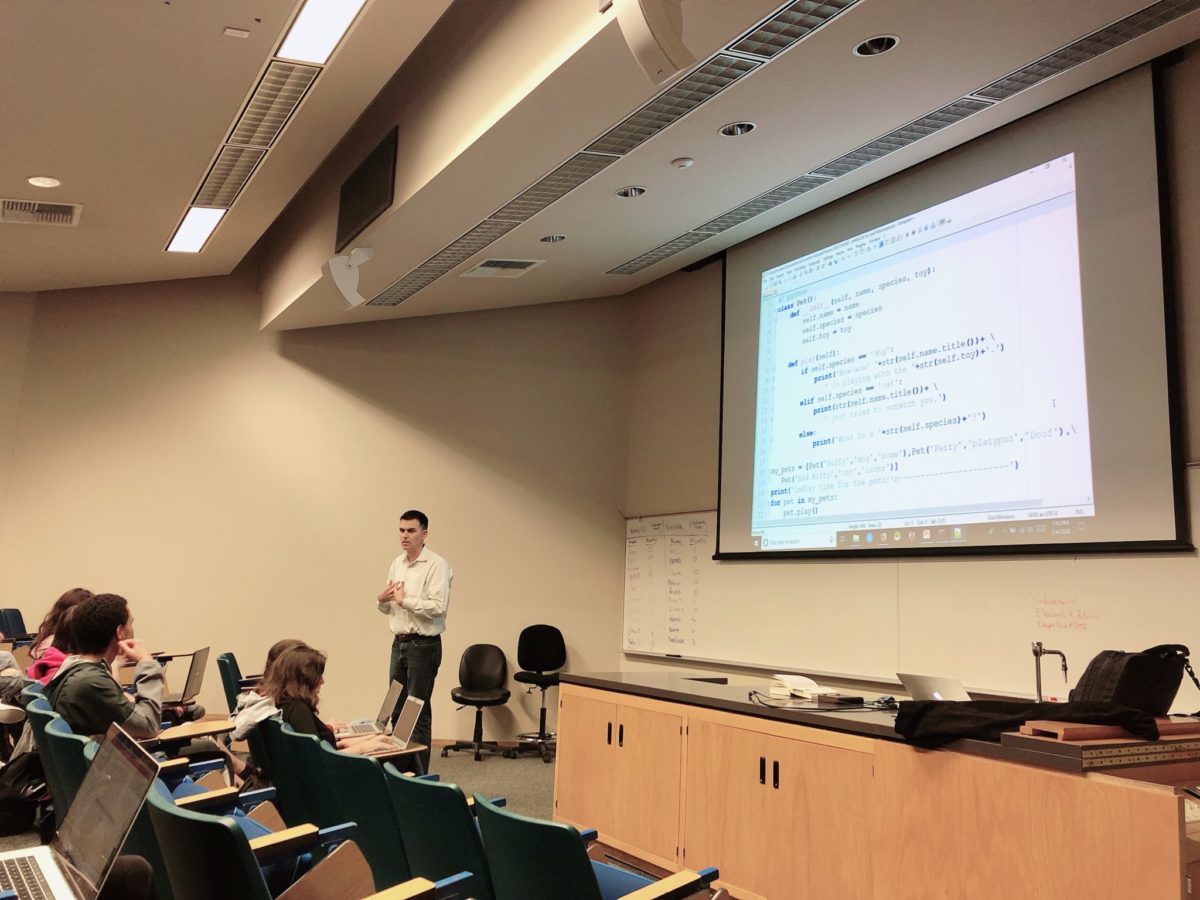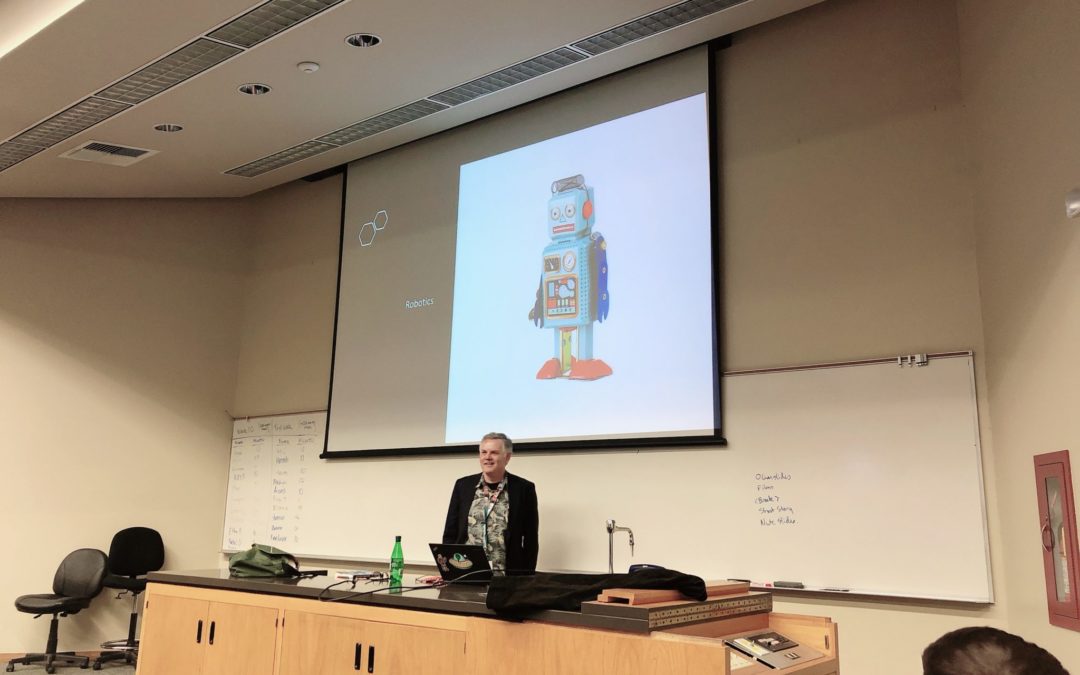Science and the Future, an Honors course taken during the junior year, is now in the hands of new instructors. This course has historically been co-taught, with two foci: the sciences and the arts/humanities. This year, Nate and Oliver Sutter, brothers, are teaching this intersecting course. One could say that Nate’s science expertise and Oliver’s arts knowledge meet each other at Star Wars, something both professors seem to love.
They say that they are quite different from each other now, but that they grew up as quite similar. In class, they have shared their love for discovery and learning, and it seems to be a trait that they have cultivated since childhood. Nate and Oliver talked about how they had “lots of shared playtime outside,” when they would love to dig complicated holes in their backyard, connecting them with tunnels.
As adults, Nate says, instead of an interest in backyard tunnel systems, they hold a “deep, chronic curiosity about the world [as a whole], with distinct lenses.” It might be this view that leads them to be “judge-y,” as Oliver says, or “evaluative,” in Nate’s words. As they both chuckle over the different words they chose to use, it becomes apparent that they have a shared sense of humor, too.

This brotherly chemistry provides a unique learning experience that is seldom offered elsewhere. Using their vast knowledge and their own learned experiences, Nate and Oliver see “team teaching art and science” as “the whole world encapsulated.” They have divided the course into four main areas of interest: climate change, the genome, human reproduction, and artificial intelligence. As such, they incorporate many different sources of media in their lessons. Throughout the course of the quarter, the class will listen to lectures on slideshow material, read and discuss a sci-fi novel, analyze academic papers and articles, and dissect short films and videos. The Sutters hope to transform a student’s outlook and point-of-view on various topics. They want to offer a “worldview check-in” and make change, continuing to educate and grow.
However, as Nate puts it, teaching about the whole world in one quarter is a “big ask, big stretch [and] big opportunity. So, Oliver summarizes, “Like any course [it is] just exciting and scary because you don’t know what’s going to happen.” Because of this aspect, they are being more flexible with Science and the Future. They acknowledge that “things change a lot,” and that students and teachers can have very different viewpoints, so they want to offer a more responsive course that can adapt to the needs of both. Of course, as Oliver emphasizes, he “[wants] to make sure [he enjoys] it, because any time they ask you to teach a course, you don’t know if you’ll teach it again.” So, here’s to hoping that the Professors Sutter will continue to enjoy themselves while teaching Science and the Future.
— Minji Oh (Class of 2021, Music Performance major)
Note – Nate Sutter is a graduate of La Sierra’s Honors Program (Class of 1995) and served as the first RA of its dorm, South Hall.

